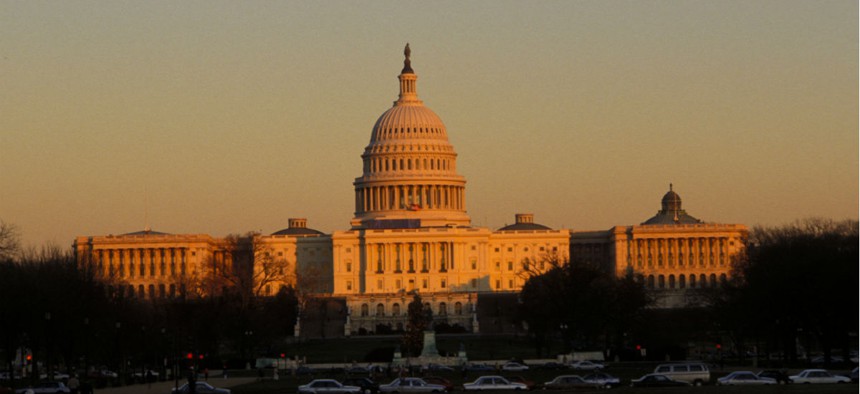
Shutterstock.com
House Panel Approves 3.1% Pay Raise for Feds in 2020
The bill advanced by the House Appropriations Committee to the House floor Tuesday also would increase funding for a number of civilian agencies.
The House Appropriations Committee on Tuesday voted 30-21 to approve a spending package that includes an average 3.1% pay increase for civilian federal employees next year, a move that would override President Trump’s plan to freeze pay in 2020.
The fiscal 2020 Financial Services and General Government appropriations bill calls for a 2.6% across-the-board pay increase for civilian federal workers and a 0.5% average increase in locality pay next year. The legislation would account for $24.9 billion in discretionary spending at the Treasury Department, judicial branch and several smaller agencies, including the Office of Personnel Management.
If enacted, the bill would mark a $1.4 billion increase over spending for the current fiscal year, and $355.5 million over Trump’s budget request. The bill also would block funds from being used to implement the Trump administration’s proposal to merge OPM with the General Services Administration.
Elsewhere in the bill, in fiscal 2020 OPM would receive $339 million in funding, an increase of $43.4 million over the current fiscal year. It also increases funding for the Internal Revenue Service 6% over Trump’s fiscal 2020 budget request and grants a nearly 40% increase over enacted spending levels for the Small Business Administration.
In a statement, National Active and Retired Federal Employees Association National President Ken Thomas applauded lawmakers’ decision to advance a pay raise.
“This modest pay increase is an important step towards recognizing the value of public servants and their hard work while making government employment more appealing and competitive with private-sector employment,” Thomas said. “We also appreciate the committee’s understanding that dismantling OPM and moving civil service policy to the Executive Office of the President would eliminate safeguards against a politicized federal workforce and put vital programs at risk of not receiving the attention they deserve.”
The committee voted down a number of proposed policy rider amendments brought by House Republicans on issues like abortion and medicinal marijuana, as well as a proposal to bring the Consumer Financial Protection Bureau under the traditional appropriations process.
Tuesday’s vote is the last pending appropriations bill on the House side. It now must be voted upon on the House floor. The Senate Appropriations Committee has not yet begun its work on spending bills.







